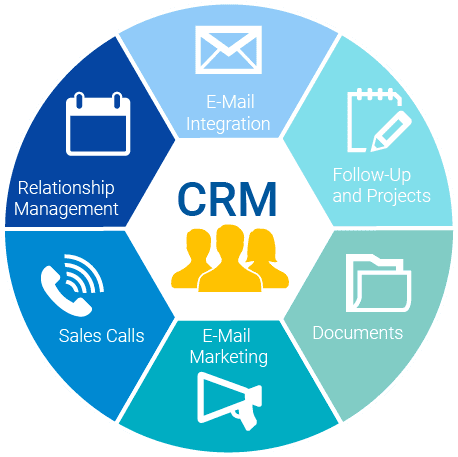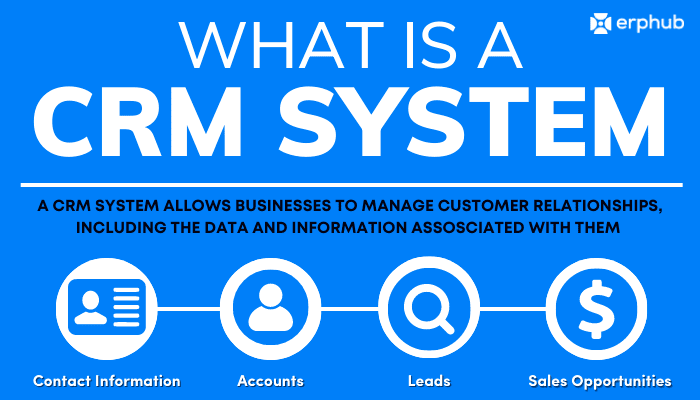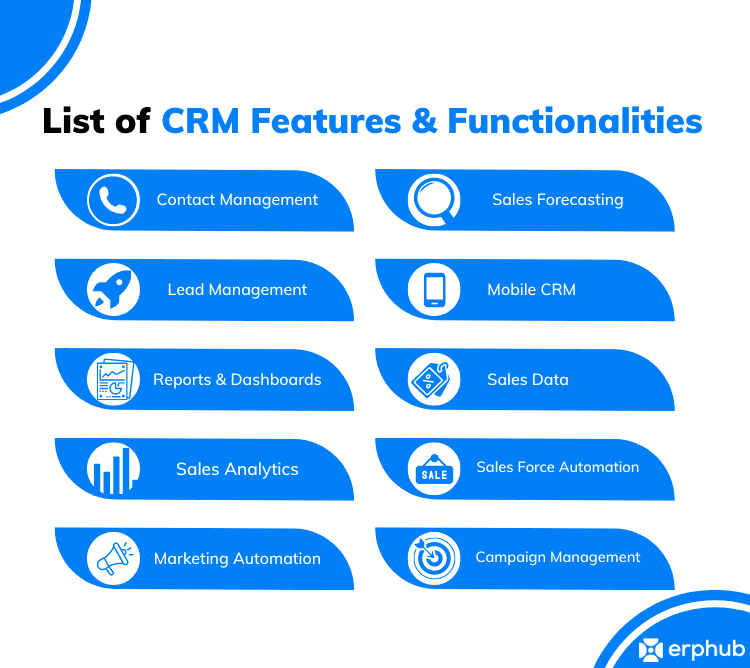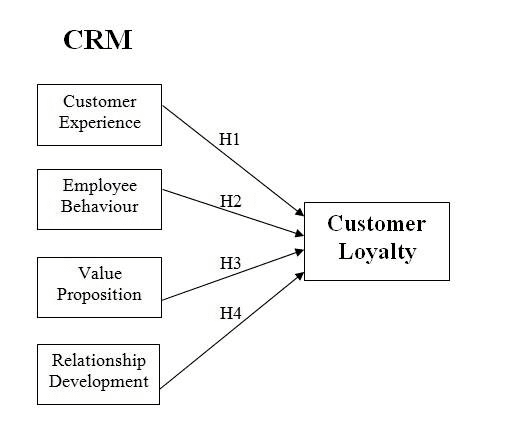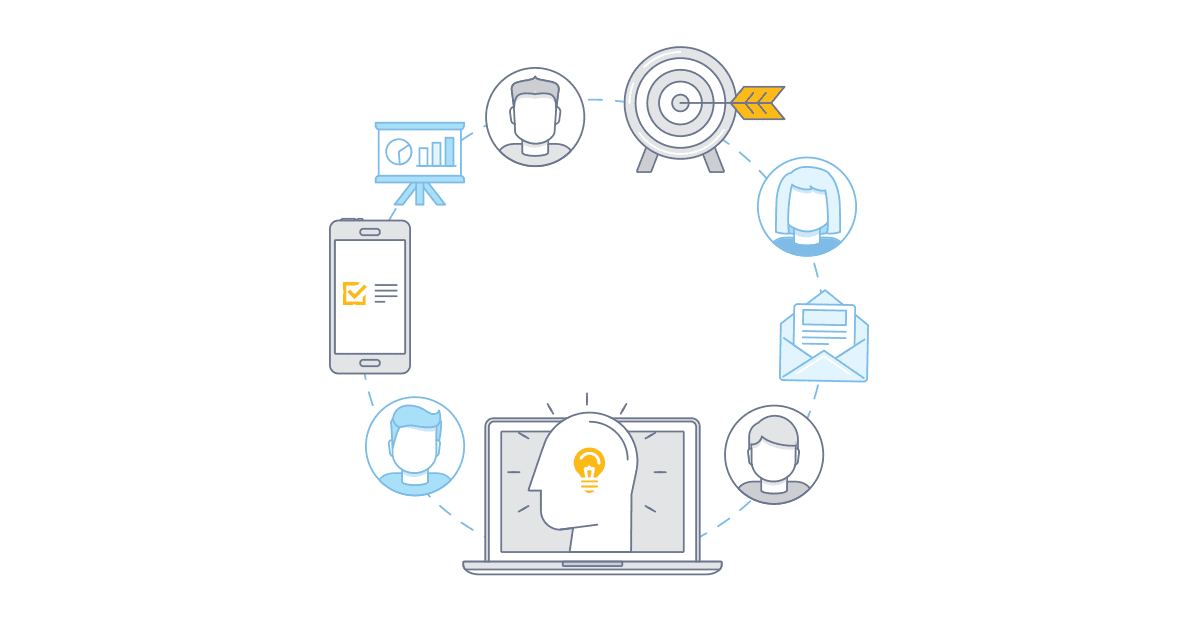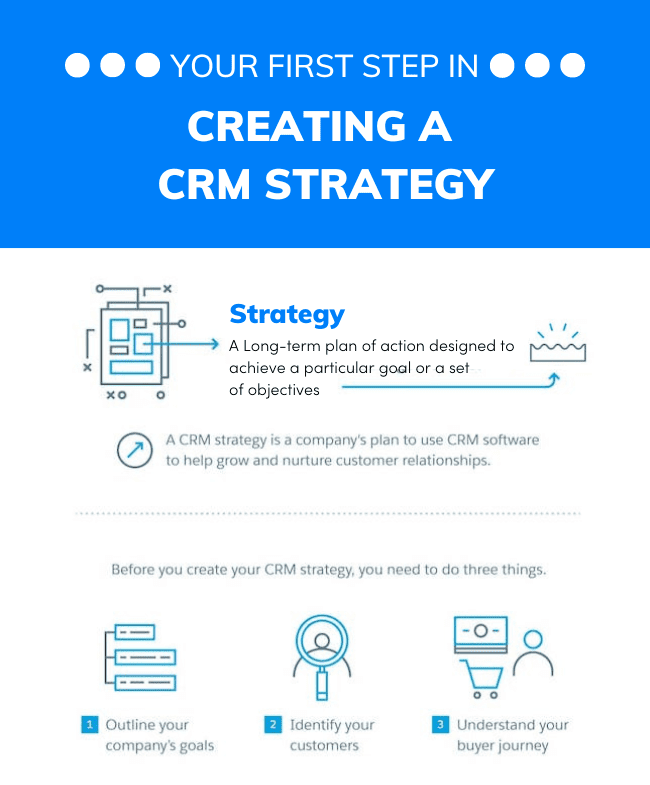What is a CRM?
Who is it for?
CRM systems are used by businesses that must nurture leads or design scalable, successful customer journeys. Spreadsheets are commonly used by startups to manage leads and clients. However, as businesses expand, manually managing an expanding list of leads and clients can become onerous, resulting in the loss of sales possibilities. Using a CRM makes handling huge lead and customer lists simple by providing efficiency and data storage options.
A CRM software gives everyone a better way to manage the external contacts and relationships that are essential to success, whether they work in sales, customer service, business development, recruiting, marketing, or any other area of the company. With the help of a CRM tool, you can manage marketing campaigns, track service issues, identify sales opportunities, and store customer and prospect contact information all in one convenient location.
What does a CRM system do?
Benefits of a CRM System
1) Improved Customer Service/Experience
A CRM system helps to streamline customer service by providing a single repository of customer information, allowing customer service representatives to quickly and easily access customer records. This helps to ensure that customer service representatives are well-informed and can provide responsive and accurate service.
2) Targeted Marketing
CRM systems are valuable when it comes to target marketing. They help to identify potential customers and develop tailored marketing campaigns, allowing businesses to deliver the right message to the right people.
3) Increased Productivity/Sales
4) Improved Customer Retention Rates
CRM systems can also help businesses to improve customer retention rates by providing better customer service and more personalized marketing campaigns. When you're customers are going through the different stages of your pipeline, it's critical to have a CRM system that tracks the activity of your customers. With this, you can provide your customers with the appropriate information at the right time.
5) Greater Insight
Stop worrying about how your sales staff is doing. A CRM will provide you with both a high-level and detailed image of rep performance. This picture will include team-wide and individual conversion rates by deal stage, average deal size, deal velocity, and that's only the beginning. With a data-supported understanding of what is effective and what could be enhanced, the possibilities are endless.
Consequences of No CRM System
Businesses lose out on the chance to effectively manage their client connections without a CRM system in place. Businesses may find it difficult to manage customer data without a CRM system, making it difficult to fully comprehend the customer journey and resulting in a walled picture of customer data. Businesses are unable to manage customer segmentation without a clear view of their customer data, which prevents them from properly targeting and customizing marketing campaigns. Businesses may find it difficult to keep track of customer dialogues without a CRM system, leading to lost chances to forge lasting relationships and possibly win over new clients.
CRM Terms
Contact: A contact is a distinct individual. Most CRMs will save their email address, first and last name. Additionally, you can keep track of information like their job description, business name, and yearly revenue.
Lead: A lead has indicated an interest in your product or service. To be considered a lead, they first must have interest and the authority to make a purchase. A marketing qualified lead (MQL) is someone who has engaged with your marketing materials in some way (downloading a PDF); whereas a sales qualified lead (SQL) is someone who has been identified as a good fit by one of your sales representatives.
Deal: A deal is a potential sale that is also referred to as an opportunity. A prospect must go through the stages in your sales process to complete the deal.
Company: You should maintain track of which connections and deals are associated with which businesses if you are selling to them. The "company" record is often placed at the top of the hierarchy in a CRM. You may need to link a single organization to ten separate contacts and four different deals.
Lead Source: Your leads are obtained from numerous sources. This might include attendance at webinars, trade shows, recommendations, or even forms on your website. By keeping track of conversions by source and transactions closed by source, you can focus on your best prospecting channels
How to use a CRM effectively?
1) Avoid Duplicates
Duplicate data impacts not only the quality of your client experience but also the accuracy of your business insights. As duplication increases, opportunity tracking and reporting becomes more fragmented and difficult. It is possible to eliminate future data duplication and reconcile existing duplicate entries with the correct strategy and software tools.
2) Appoint an expert
An CRM expert who is assigned as the dedicated super-user of your new CRM system can guide you in the process of creating an efficient system. This is the internal go-to person who is there to assist when others in your organization have issues or need support. Experts frequently serve as the CRM vendor's point of contact and are the first to learn about new product releases, software updates, issues, and more.
3) Establish internal usage guidelines
4) Define CRM strategy and philosophy

